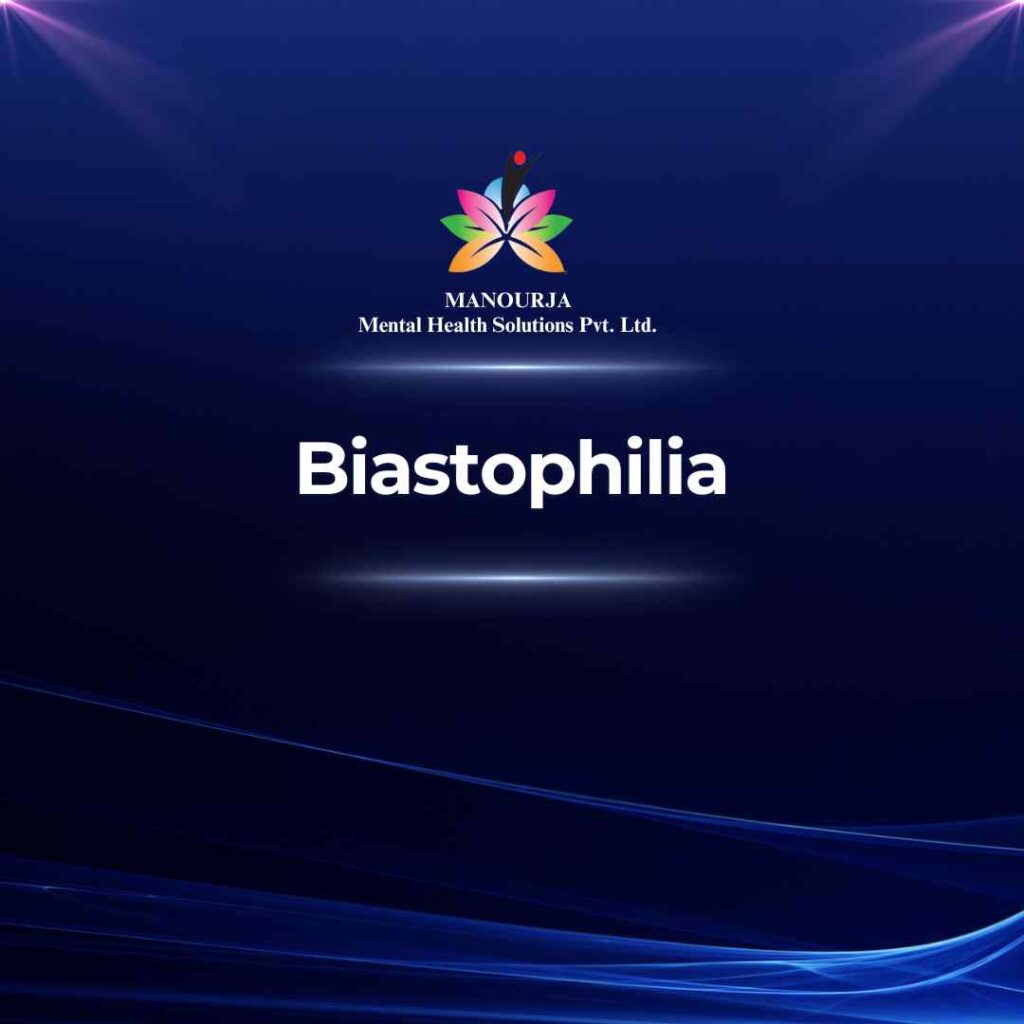Biastophilia

Biastophilia, also known as raptophilia, is a paraphilic disorder characterized by an intense sexual arousal and attraction to the idea of assaulting an unsuspecting person, often in a violent manner. The arousal is linked specifically to the non-consensual nature of the act, making it distinct from consensual BDSM activities, which are based on agreements and mutual satisfaction of fantasies within safe, sane, and consensual boundaries.
Symptoms of Biastophilia
- Focus on Non-Consent: The primary characteristic of biastophilia is sexual arousal from the fantasy or act of overpowering and forcing another person to engage in sexual behavior without their consent.
- Fantasies or Acts: Individuals with this disorder may have recurring fantasies about sexual assault, and some may act on these fantasies, which can lead to criminal behavior.
- Distress or Impairment: These fantasies or behaviors cause significant distress or impairment in personal, social, or other areas of functioning, particularly if the individual feels guilt, shame, or fear of punishment.
- Risk of Harm: There is a significant risk of harming others, which differentiates biastophilia from other sexual interests that involve aggressive or dominant sexual activities but within consensual contexts.
Forms of Biastophilia
Biastophilia can manifest in various degrees of severity:
- Fantasy-Only: In some cases, individuals do not act on their fantasies but are troubled by their persistent nature and the distress they cause.
- Occasional to Compulsive Behavior: For others, the impulses may lead to actual assaults, ranging from occasional lapses in control to compulsive patterns of behavior.
Treatment of Biastophilia
Given the high risk of harm associated with biastophilia, treatment is crucial and often involves a combination of psychotherapy, monitoring, and sometimes pharmacological interventions to manage sexual arousal and impulsivity.
Psychotherapy
- Cognitive Behavioral Therapy (CBT): This therapy helps individuals recognize and change harmful thought patterns and behaviors, develop healthier sexual attitudes, and learn impulse control techniques.
- Relapse Prevention Therapy: Adapted from treatments for addictive disorders, this approach helps individuals recognize early signs of potential relapse into harmful behaviors and employ strategies to prevent them.
Medication
- Antiandrogens: These medications can reduce sexual drive by lowering testosterone levels and are sometimes prescribed in severe cases where risk management is a priority.
- SSRIs (Selective Serotonin Reuptake Inhibitors): These can help manage underlying issues of impulsivity and obsessive thoughts that may contribute to the disorder.
Legal and Ethical Management
- Legal Supervision: Individuals may be subject to legal supervision or restrictions, particularly if they have committed sexual offenses. Part of the treatment may include navigating legal obligations and managing behaviors within the constraints of the law.
- Ethical Considerations: Treatment also involves addressing the ethical considerations of risk to others, ensuring that the individual understands the impact of their behavior and the importance of consent.
Supportive Therapy
- Group Therapy: Can be beneficial in providing support and reinforcing social norms and behaviors. However, care must be taken to ensure that group settings do not reinforce negative behaviors or attitudes.
- Family or Couples Therapy: If the individual is in a relationship, these forms of therapy can help address relationship dynamics that may be impacted by the disorder and work towards healthier interpersonal relationships.
Monitoring and Safety
Due to the potential for serious harm associated with biastophilia, treatment often requires close monitoring and collaboration among mental health professionals, legal authorities, and sometimes medical professionals. The primary goal is to prevent harm, reduce distress, and help the individual lead a law-abiding life. Individuals suspected of having biastophilia should seek immediate professional help due to the serious nature of this disorder.
At MANOURJA, we believe in the transformative power of counseling. Our experienced therapists offer a safe and supportive space where you can explore your thoughts, emotions, and challenges. Through personalized counselling sessions, we’ll work together to develop coping strategies, build resilience, and achieve lasting positive change. Discover the path to a healthier, happier you with MANOURJA counselling services.
MANOURJA Rehabilitation Services
At MANOURJA, we’re dedicated to helping you in rebuild your life, after difficult times. Our rehabilitation services focus on understanding what you need to move forward, whether you’re recovering from addiction, trauma, or any psychological – social challenges. We create personalized plans, that are all about helping you, regain your strength and find hope again. With a caring team by your side, you’ll have the support to make real progress and take steps toward a brighter, healthier future.
